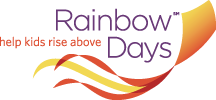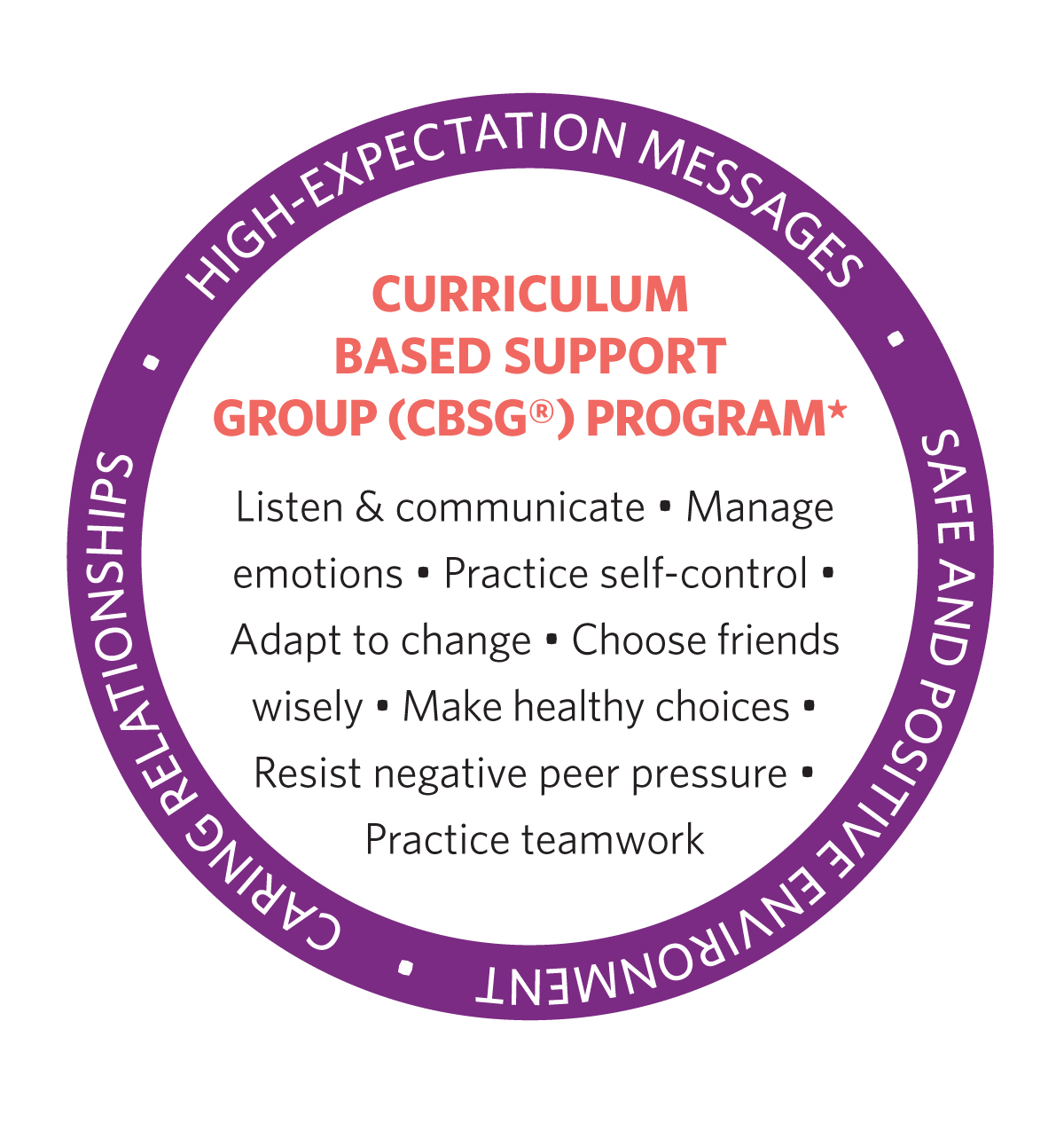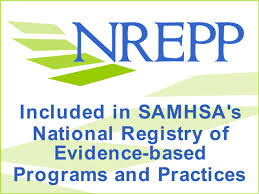Community Connection
Community Connection has been Rainbow Days core program since it was founded in 1982 and began providing educational support groups and other supportive services to help children and youth rise above adversity and give them hope for a promising future.
Children living in high-risk situations are the least likely to possess essential coping and social skills or the emotional and social support necessary to overcome traumatic stress and succeed in spite of adversity. High-risk situations adversely impact everything children need to be successful, including: their sense of security, education, and overall emotional well-being.
The Curriculum-Based Support Group (CBSG) Program for Schools or Community Based Settings is the inaugural program of Rainbow Days and was developed the same year as the agency was established. The purpose of our Curriculum-Based Support Group (CBSG) Program is “to provide children and youth who have had, or are at risk for having, adverse experiences, with the skills and support they need to rise above adversity and stay in school, and stay free of drugs, violence, and crime.” It is designed for delivery in schools and after-school settings, youth service organizations, public housing sites, recreation and community centers – essentially any setting where children and youth gather on a regular basis.
75.6% of all public school students in Dallas County qualify for free or reduced price meals at school.
One in five children and adolescents is affected by an emotional disturbance or alcohol/drug addiction; and violence is increasing.
Today, one in four children lives in poverty.
Kids' Connection Support Groups
I have learned that I don’t have to fight any more. I can turn the other cheek and think about ways to cool down. The other day a guy tried to pick a fight with me, but I didn’t let him get to me, I just blew it off.
– George, age 11, Community group participant
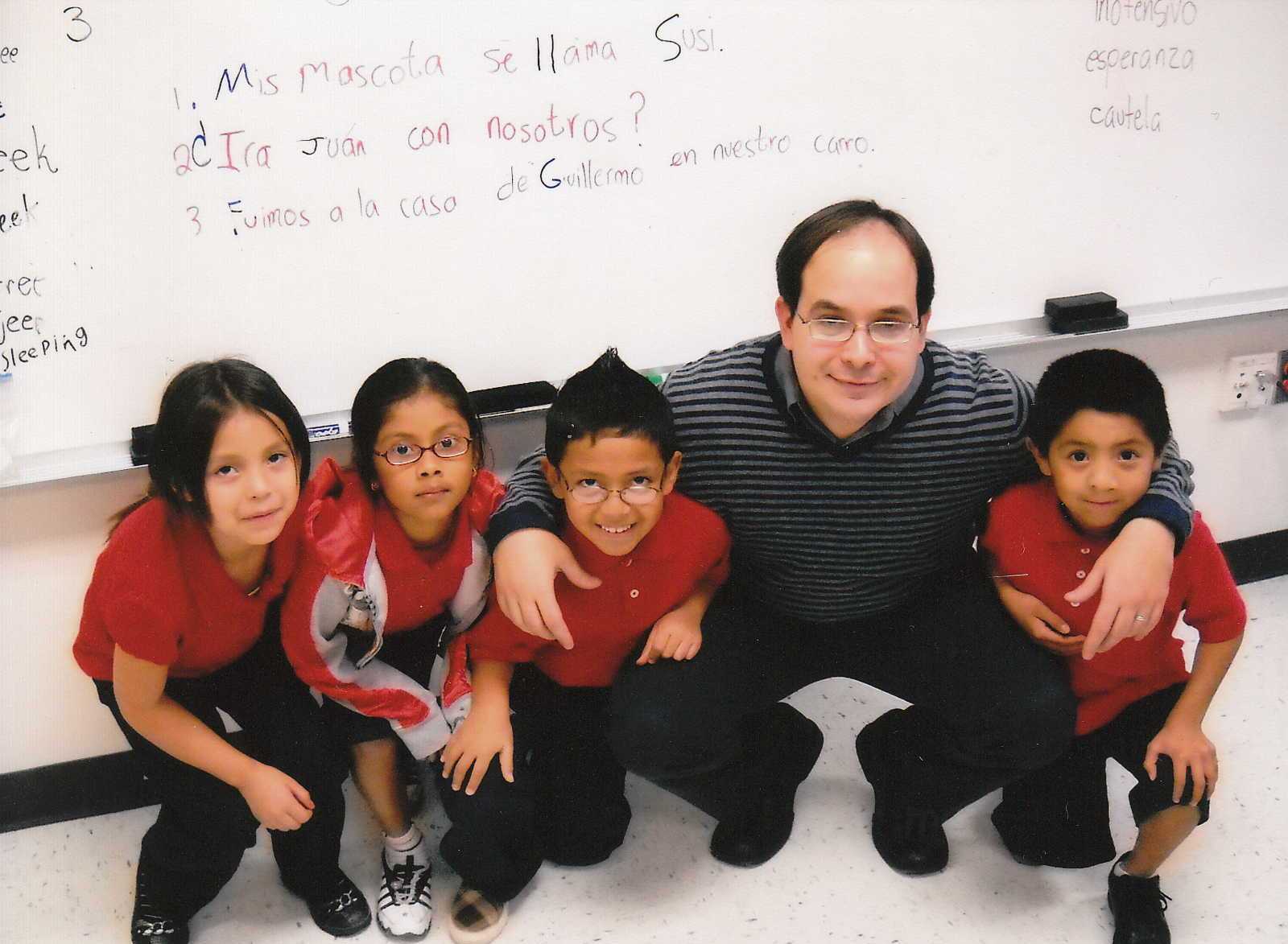
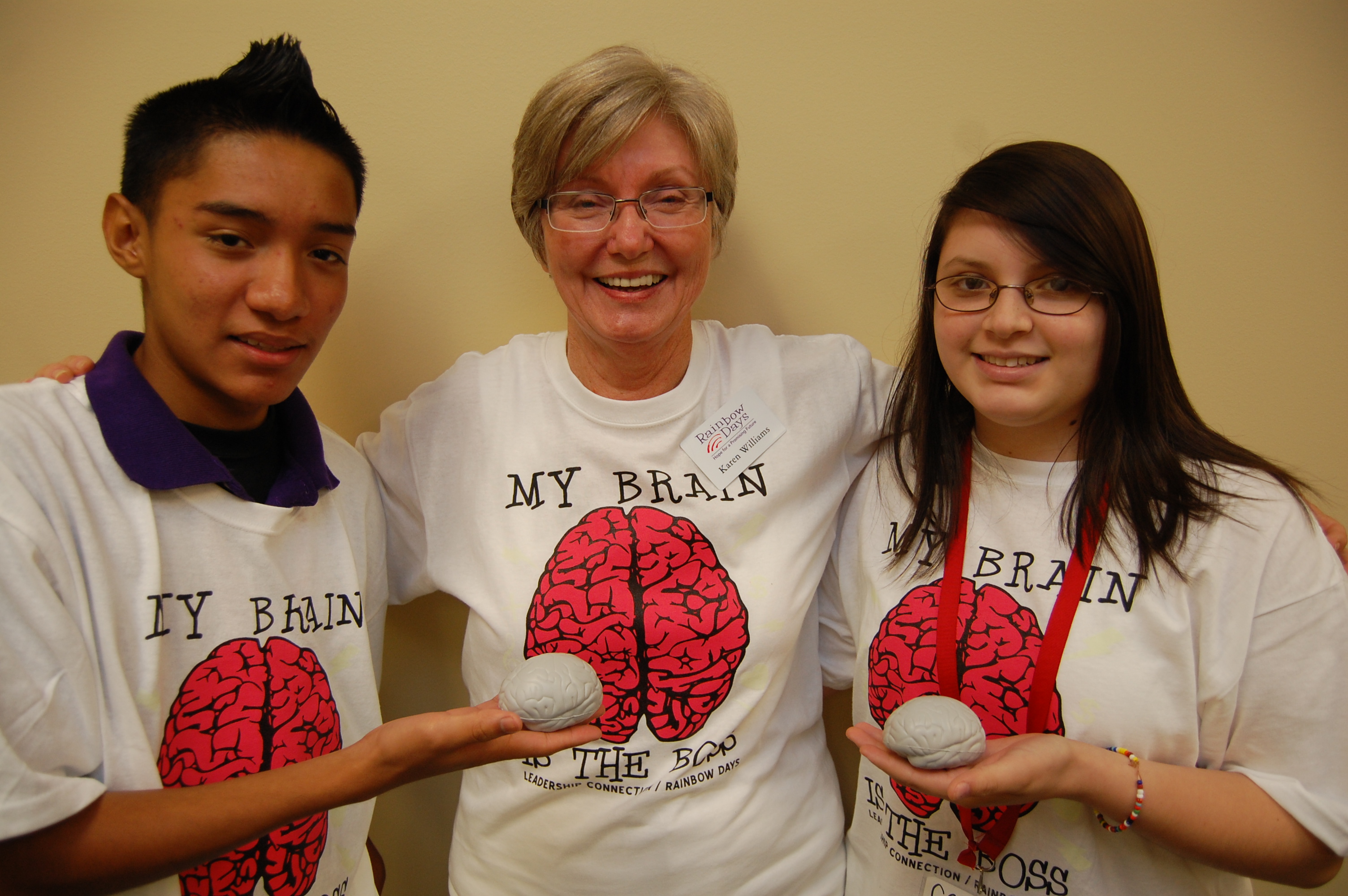
I’ve learned that drugs and alcohol are bad for you and they can also hurt you or your family. I don’t have to do that stuff to be cool or to have fun.
– Sergio, age 11, Community group participant
I was a Rainbow Days kid in the mid-80s. I can still remember how much it helped me. Remembering that has made me not only want to donate, but give something back to kids who are struggling with what we went through.
– Laura, Adult who participated in Support Groups as a child

Frequently Asked Questions
What is the Curriculum-Based Support Group (CBSG) Program?
The Curriculum-Based Support Group (CBSG) Program for Schools or Community Based Settings is a multi-cultural prevention support group for children and youth, ages 4-17, whose adverse situations, attitudes and behaviors place them at elevated risk for substance abuse, delinquency and violence. The CBSG Program provides an evidence-based curriculum of coping, social and substance abuse prevention skills delivered in a highly-structured support group process by a trained, caring group facilitator.
Further, the support group program offers additional protective factors: small group numbers; time for discussion and skills practice; the emotional and social safety of a structured and supportive process, including group rules and confidentiality; opportunities for bonding; less stress; and the emotional support of a caring, trained group facilitator.
What is the frequency and duration of the CBSG Program for Schools or Community Based Settings?
Sessions can be scheduled to meet weekly or bi-weekly, depending on the developmental age of the group participants. The duration of each session is approximately the same length as a regular school classroom period for the same developmental level.
How many sessions are in the CBSG Program for Schools or Community Based Settings?
There is a total of 10 to 12 sessions. The first 10 sessions, conducted in sequence, provide a complete program cycle. It may prove more beneficial for some youth ages 10 to 17 to participate in a total of 12 support group sessions.
What topics are covered in the CBSG Program for Schools or Community Based Settings?
| Session Topic | Session Goal |
| 1. Getting to Know You | To get acquainted and learn about group process |
| 2. A Celebration of Me | To recognize and celebrate the unique and special qualities of each participant |
| 3. Feelings | To identify feelings and learn appropriate, healthy ways to express them |
| 4. Handling Anger | To identify ways to stay calm and stay out of fights |
| 5. Dreams & Goal Setting | To gain or strengthen our sense of purpose and feel more confident in setting goals and taking steps that will help us in achieving our dreams |
| 6. Making Healthy Choices | To recognize that we have the freedom to make choices and that most people our age want to make healthy choices |
| 7. Friends | To identify ways to make and maintain healthy friendships |
| 8. Resisting Negative Peer Pressure | To develop the confidence and skills needed to resist negative peer pressure that could lead to unhealthy choices |
| 9. Putting It All Together | To review all the major messages and key points from the previous eight sessions |
| 10. Celebration & Commitment | To celebrate one another and our group experience and to make a commitment not to use alcohol, tobacco, and other drugs |
Additional Sessions
11: Chemical Dependency: A Family Disease
To learn how to take care of ourselves if living in a family impacted by chemical dependency.
12: Changes & Challenges In My Life
To identify ways to handle change and challenging situations, especially change over which we have no control.
Where are CBSG Program for Schools or Community Based Settings implemented?
The Community Connection team delivers the CBSG Program in schools and after-school settings, youth service organizations, public housing sites, recreation and community centers – essentially any setting where children and youth gather on a regular basis.
What are the outcomes of the CBSG Program for Schools or Community Based Settings?
Empirical studies show that the CBSG Program significantly decreases substance use, rebellious behavior, anti-social attitudes, and significantly increases anti-substance use attitudes and intentions. For more information regarding the CBSG Program and outcomes click here.
